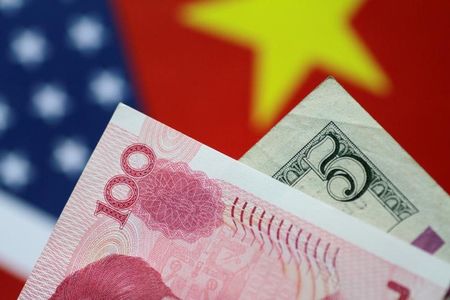AI Sentiment: Cautiously bearish
Reason: Asian currencies have edged lower due to disappointing retail sales data from China. The yuan, yen, and Australian dollar weakened against the US dollar, raising concerns about the region's economic recovery. Despite this, analysts hope for a rebound in Chinese consumption in the coming months.
In a recent turn of events, Asian currencies seemed to have edged lower as the US dollar neared a three-week high. This was largely influenced by the disappointing retail sales data released by China, which fell short of analysts' expectations for the month of August.
The People's Bank of China (PBOC) set the yuan's midpoint rate at 6.4431 per dollar prior to the market open, which was weaker than the previous fix of 6.4296. However, the spot market opened at 6.4425 per dollar and was changing hands at 6.4428, a mere 3 points weaker than the previous late session close.
For the Japanese yen, it weakened 0.06% versus the greenback at 110.09 per dollar, while the Australian dollar dipped 0.11% to $0.7314. The Euro was down 0.04% to $1.1805, whereas the Sterling was flat at $1.3834.
Over in South Korea, the won was down 0.20% against the dollar, to 1,173.00, while the benchmark bond yield rose. The Malaysian ringgit weakened 0.05% to 4.150 per dollar, whereas the Philippine peso was flat at 50.70 against the dollar.
China's retail sales data was a significant disappointment, with a growth of just 2.5% in August year-on-year, far below the estimated 7.0% and the 8.5% growth seen in July. This was the slowest pace of growth since August 2020, with analysts attributing the slump to local COVID-19 outbreaks and floods in China.
The weak data from China has raised concerns about the economic recovery in the region, particularly as it might hinder central banks' plans to taper monetary stimulus. The worry is that if recovery is slower than expected, it might delay plans to wind down support measures which were put in place to combat the economic impact of the pandemic.
However, analysts are still holding out hope for a rebound in Chinese consumption in the coming months. They argue that the slump was largely due to temporary factors such as strict virus curbs, which have now been eased, and believe that the recovery in consumption is still on track.




